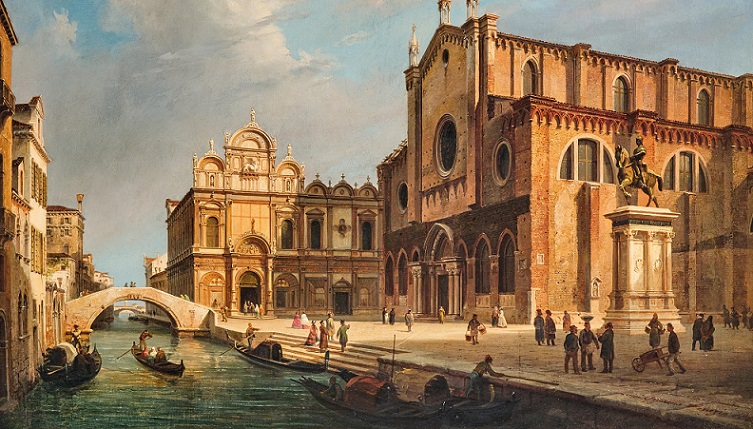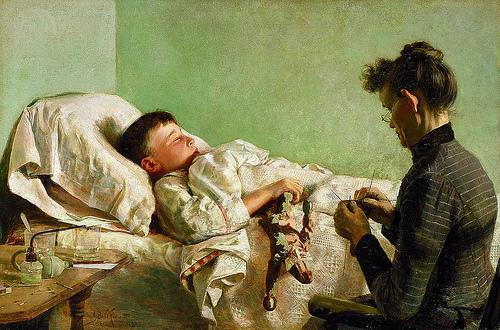They mix together here
waiting for the trim
black and gold gondolas
heading into side
canals that drain and brim
with refuse and will bear
souls that wait to ride.
The tourist’s straying finger
stutters taking photos
of shadows as they linger—
chiaroscuro, light
and dark—along the rows
of tapered mooring poles
that feel the water’s bite.
The domed basilica,
whose gold mosaic zoo
of birds and fish that shimmer,
scales in glassy hue,
shelters Adam. Dimmer
squares of silica
depict what sin will do.
He and Eve, still lost
in deeper loss and weary,
stare at us, and we
look back and count the cost.
With no way back. In teary
smiles we hope to see
the whole be whole again.
Royal Rhodes is a retired professor of religion who has taught classes in global traditions, religion & the arts, and death & dying. A trained Classicist, his poetry often reflects those ancient themes and forms. He has had poems published online and in a series of poetry/art collaborations with The Catbird [on the Yadkin Press] in North Carolina. His current project is a poetry/photography collaboration on sacred sites in Italy.
















Such a slow and beautiful poem, flowing along as do the canals, with many undercurrents of vocabulary and meaning. I hope to see more.
Thank you
This poem, Royal, is a masterpiece of rather quiet manipulation of a reader’s sensibilities. And basilica/silica, though an identity rhyme, is masterful. You understand what you are doing here far better than I could ever explain. This poem reminds me, to some extent, of the original English poetry written by Richmond Lattimore. Classics is a good foundation from which to begin writing in the common modern tongue.
An intriguing poem of individually well wrought stanzas that move the piece forward to become “the whole,” not quite seen as “we look back,” but promised to our “teary smiles.” As Sally says, the flow is fascinating.
I think this has an exquisitely musical flow. The rhyme scheme is intriguing; and I love the poignant ending.